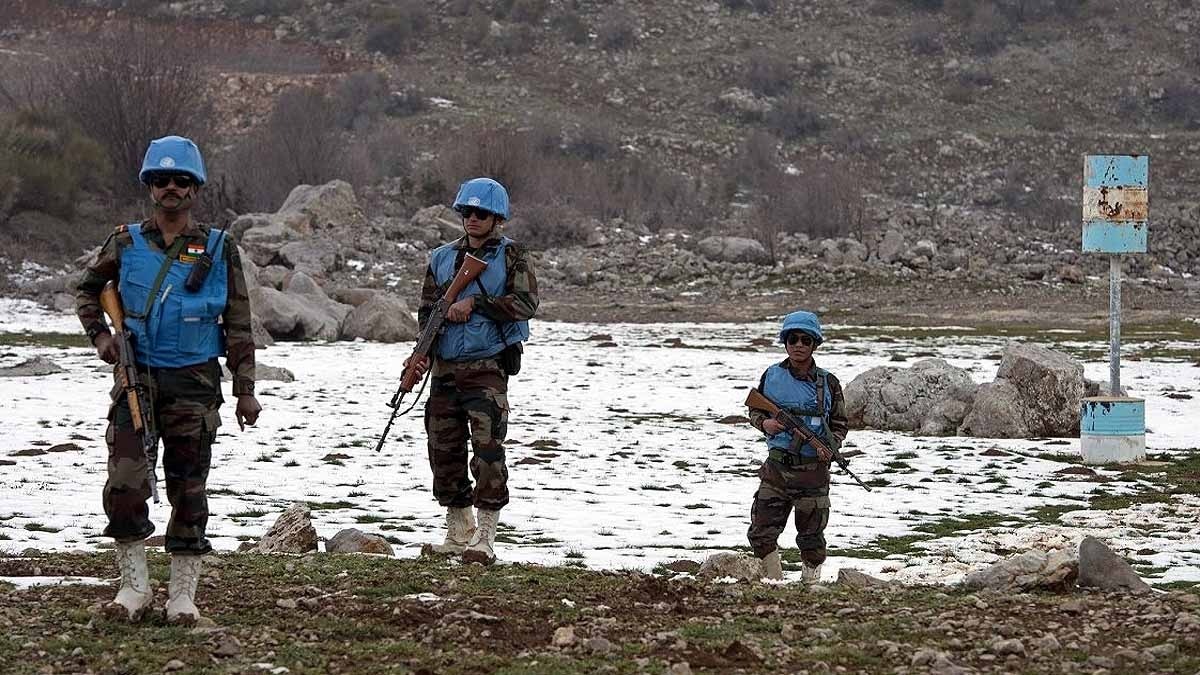2024-11-08 14:24:12
A loud chorus of international criticism condemned the attack on the UN’s peacekeeping mission over the last month in southern Lebanon, where India has deployed over 900 troops.
The peacekeeping force, known as the United Nations Interim Force In Lebanon (UNIFIL), faced several attacks, injuring at least five peacekeepers. UNIFIL has blamed the Israeli Defence Forces (IDF) for intentionally carrying out some of the attacks.
However, no Indian armed personnel has endured injury in any of the attacks.

India Today’s analysis suggests that since the beginning of the Israeli invasion, no major consequential attacks have been reported in India’s area of responsibility, which falls in southeastern Lebanon, near Sheba Farms and the Syrian border.
The nearest site of attack on October 31 was at Maroun El Ras, approximately 25 km from India’s Area of Responsibility (AoR). Though Israel has issued several orders for civilians to evacuate from the AoR, indicating Israel’s future military actions in the region, and hence, potential conflict with Hezbollah militants.
Data from media reports and an American non-profit think tank, the Institute for the Study of War, suggests that since the start of Israel’s ground operations in early October, UNIFIL positions have come under attack at least 20 times at eight different locations.
India joined the international community to demand the safety and security of peacekeepers in Lebanon.
“As a major Troop Contributing Country, India aligns itself fully with the joint statement issued by the 34 UNIFIL troop contributing countries. Safety and security of peacekeepers are of paramount importance and must be ensured in accordance with extant UNSC Resolutions,” posted the Permanent Mission of India at the UN in New York on X.

SELF-DEFENCE FOR UNIFIL TROOPS
On October 10, UNIFIL described an incident of an attack allegedly by the Israeli Defence Forces (IDF) that triggered worries in the capitals of UNIFIL’s and contributing countries to troops.
In a statement, the mission said IDF soldiers also fired on a UN position in Labbouneh, hitting the entrance of the peacekeeper’s bunker with a drone following them up to its entry gate inside the UN compound.
The incident raised an important question: how do UNIFIL troops defend themselves in the face of aggression or conflict? “There is no straight forward answer to it,” said Maj Gen (retd) AK Bardalai, the former Deputy Head of the Mission and Deputy Force Commander of UNIFIL from 2008-10.
The veteran says defence measures are at the discretion of the commander of the unit facing the threat. “But the general good practice is to use force in absolutely unavoidable circumstances. Because use of arms by a peacekeeper may trigger a conflict or add fire to an ongoing conflict,” Maj Gen (retd) Bardalai told India Today.
He blames the ambiguous nature of the UN policies that guide its peacekeeping operations.
However, several contingents carry sophisticated military equipment, including the main battle tank (MBT) and self-propelled artillery guns. But they’re meant to give enough staying power to the contingents until the country extracts their peacekeepers to a safer place in case of a full-fledged war, he adds.
UNIFIL MANDATE
UNIFIL, responsible for monitoring the 120-km ‘Blue Line,’ which has witnessed fierce confrontations between Israeli and Hezbollah forces in the past, confirmed that several rockets were launched from southeast Lebanon towards Israeli-occupied territory in the Kafr Chouba area in recent weeks. In response, Israel retaliated with artillery fire aimed at Lebanon.
The 120-km Blue Line is a UN-recognised demarcation line indicating the withdrawal of the Israeli military from southern Lebanon. It separates Lebanon from Israel and the Golan Heights, but it is not an official international border.
UNIFIL has around 10,500 peacekeepers drawn from 50 troop-contributing countries, including India. 17 per cent of its activities are carried out jointly with the Lebanese Armed Forces. A five-vessel Maritime Task Force also complements the UNIFIL.
Israel invasion, UNIFIL, UN peacekeepers, south Lebanon, Indian troops, Israel-Hezbollah conflict, world news, India Today's OSINT
Source link
4 total views , 1 views today
